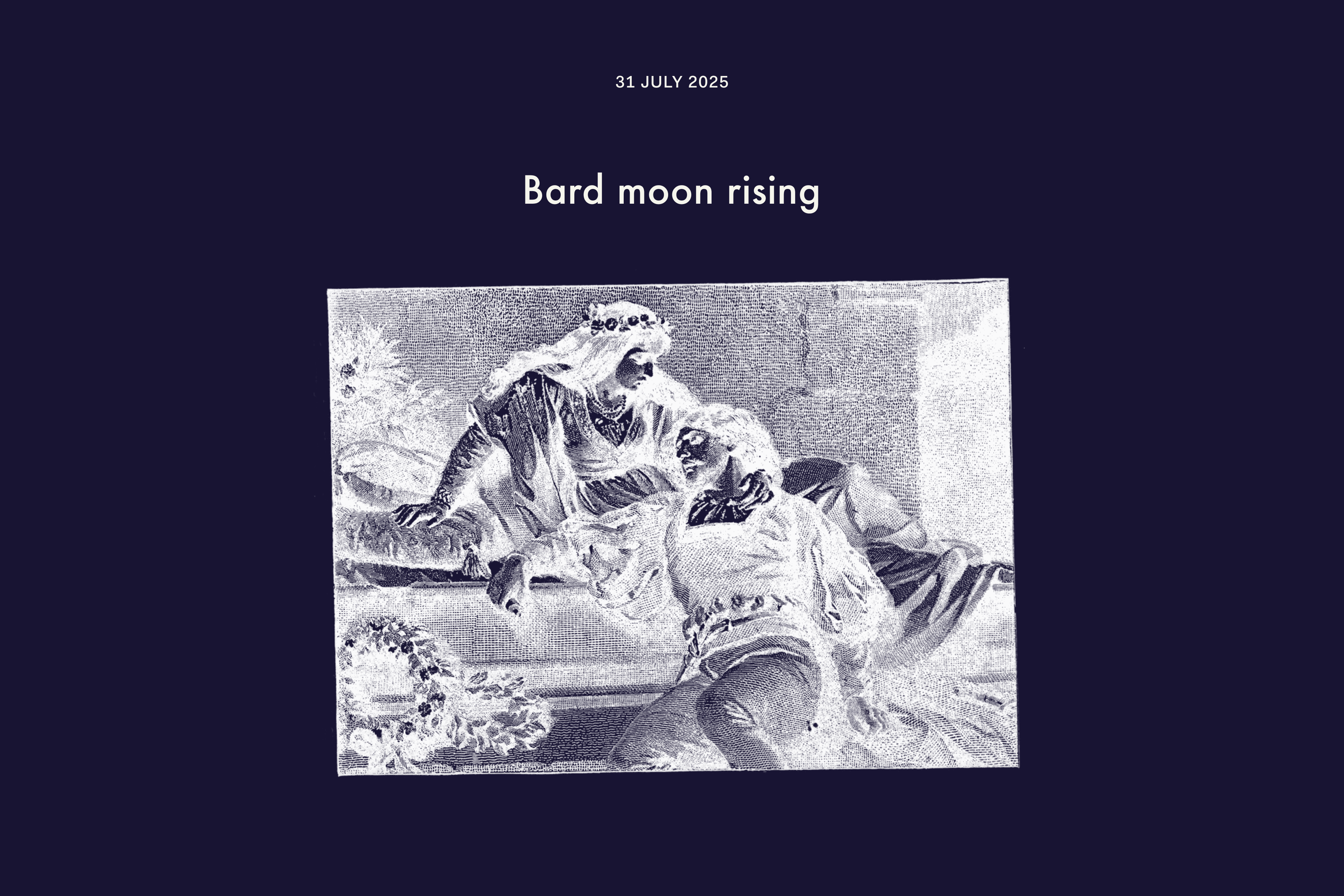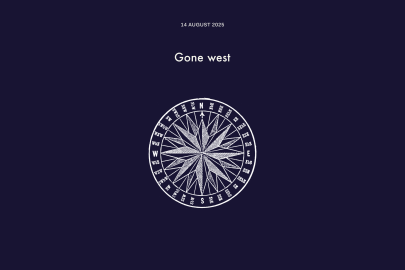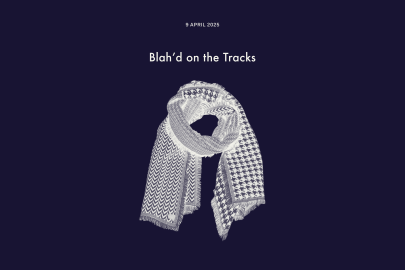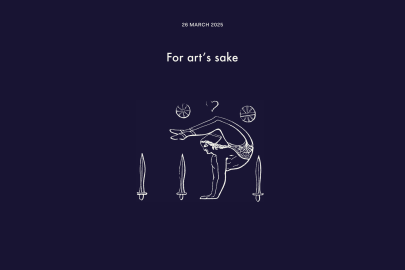Jul 31, 2025 Metro Arts
My plan for this week’s newsletter was to review Auckland Theatre Company’s new production of Romeo & Juliet, but alas on opening night I was struck down by a mild but not-suitable-for-sitting-in-a-crowded-theatre cold and I’ve not had a chance to see it since. In lieu of the real thing (i.e. actual theatre) I fired up Disney+ to watch my generation’s definitive version — Romeo + Juliet (1996) directed by Baz Luhrmann, starring Leo DeCaprio and Claire Danes and was not disappointed. Sure, there’s some 90s-ness to it that a few years ago would have made me cringe, but my 12yo daughter’s explorations of 90s culture has made this whole world seem less nostalgic and more, dare I say it, timeless.
And it’s this quality that many people associate with The Bard — that his plays, especially his most famous works, are not just great, but timeless and universal. They’re about, we’re told, the human condition, and so not bound to any time or place and can be set anywhere — a Miami-eque “Verona Beach” in 1996 or in ATC’s new rendition, 1960s Italy. But watching the movie, I was struck not so much by the film/play’s enduring relevance to modern society, but precisely from its profound irrelevance. Rather than seeing reflections of today’s world, maybe we’re actually captivated by some sort of fantastical escape, a glimpse into a world so fundamentally different from our own that it becomes a compelling, almost alien, landscape.
In Romeo and Juliet, a play frequently presented as the quintessential tale of young love, its themes of passion and tragedy are universal, the specific context that drives its narrative is anything but contemporary. The central conflict — a bitter, multi-generational feud between two powerful, aristocratic families — is a relic of a bygone era. In our largely metropolitan, globally interconnected, and individualistic societies, the notion of entire families being locked in a blood vendetta that dictates the lives and deaths of their children feels utterly foreign. The idea that societal structures where familial honor trumps individual autonomy to such a devastating degree is a great narrative set-up, but completely unrelateable to almost anyone likely to buy a ticket.
Similarly, the concept of love at first sight, culminating in a secret marriage and double suicide within a matter of days, reads less as a cautionary tale about impulsive youth and more as a grand, operatic fantasy. Modern relationships, while not without their own complexities, rarely unfold with such dramatic swiftness or are dictated by such extreme external pressures. Our understanding of romance is shaped by different social norms, communication technologies, and a broader spectrum of personal choices. The societal constraints, the almost complete lack of agency for young women, the immediate resort to violence – these elements are not relatable commentaries on today’s romantic landscape. Instead, they transport us to a world governed by different rules, where passion burns hotter and consequences are more immediate and fatal.
Maybe it’s this detachment, ironically, that makes Shakespeare so fascinating. When we watch Romeo and Juliet, we are not seeing ourselves at all, but watching a meticulously crafted historical drama, a vibrant display of archaic customs, heightened emotions, and grand pronouncements. It’s a journey into a past that feels both epic and distant, allowing us to engage with universal human emotions like love, hate, and grief without the discomfort of direct self-reflection that comes with contemporary works.
In this light, Shakespeare’s enduring appeal lies not in his mirror to our present, but in his window to a distant past. His plays offer a form of historical tourism, a chance to immerse ourselves in narratives that are grander, more tragic, and more dramatically structured than the often mundane realities of modern life. (Many jokes have been made about how so many now-classic narrative set ups would have been easily solved or avoided if the protagonists had smartphones). We are not seeking contemporary commentary, but rather a powerful, beautifully rendered fantasy that transports us far from the everyday. And while I haven’t seen this version yet, a trip to 1960s Italy (via the words of a 16th Century playwright) sounds pretty compelling right now.
– Henry
What’s On
Metro x Auckland Philharmonia
Auckland Phil’s NZ Herald Premier Series: Daphnis et Chloé
Auckland Town Hall
7.30pm, THURSDAY 7 AUGUST
The Auckland Philharmonia joins forces with Sydney Philharmonia Choirs to celebrate Ravel’s 150th birthday with the astonishing orchestral showpiece – the music from the ballet Daphnis et Chloé played in its entirety – and superstar Spanish pianist Javier Perianes takes on Saint-Saëns sumptuous Fifth Piano Concerto.
If immersive, bold, lush and beautiful sounds good to you – this is your kind of night.
—
The Changing Same
with The Bobby Holidays and The Fuzzies
Clare Inn
FRIDAY 1 AUGUST
There’s few things in life as simple and gratifying as watching some guitar music in a pub environment. It’s something of a rare pleasure given the city is fairly light on the ground in terms of proper pubs. But thankfully, Matthew Bannister (of the under-appreciated Sneaky Feelings) and his current band, The Changing Same will be bringing some pint-spilling energy to the Irish-bastion of the inner suburbs. Best of all, it’s free.
—
Man Lessons
Basement Theatre
ON NOW – 2 AUG, 8PM
We’re in the middle of what feels like a recession in the economy of compassion. So don’t miss your chance to connect with the potently expressed journey of another person on their own turbulent, messy path toward themself. This on-stage supplement to the ongoing documentary Man Lessons, which follows Adam Rohe’s gender transition functions as an in-the-moment behind-the-scenes, a combination of intimate documentary footage with live storytelling by Adam — raw, wild and earnest.
—
On Display
Maggie Friedman and Ammon Ngakuru: Icon
Coastal Signs
14 AUGUST – 13 SEPTEMBER
Join Coastal Signs in popping the cork on their new Karangahape Road location (312 Karangahape Rd) on Wednesday 13 August at 6PM with a show of paintings from Maggie Friedman and Ammon Ngakuru that provoke the ‘why?’ of it all.
—
Haines & Hinterding: Ether
Sumer Gallery
ON NOW – 23 AUGUST
Formidable Australian duo David Haines (b. 1966) and Joyce Hinterding (b. 1958) have together (and independently) explored the big, unknowable theme of energy. It’s a productive conceptual ground from which they seek to challenge the way the world is perceived—which often slams into how it really is.






